UPSC exams – gateway to the top posts in the country – have spawned a thriving coaching industry whose claims are increasingly under the scanner.
New Delhi: Each year after the results of Union Public Service Commission (UPSC) exams for the civil services are announced, coaching classes go on an advertising spree — some claiming that at least 200 to 300 of their candidates have made the cut; others relying on the names of that year’s toppers to influence prospective candidates.
In 2017 for instance, ALS, a coaching centre based in Delhi claimed that 244 of the 990 selected were its students, while Vajiram and Ravi, another popular coaching institute, claimed to have had 400 plus selections. The Delhi-based Chanakya claimed 355 of those selected were its candidates.
The numbers hardly ever add up for an examination that is considered among the toughest, not only in terms of content but also for the sheer percentage of those who finally make the grade.
Take 2017 for instance. Of the 4.5 lakh candidates who appeared for the preliminary examination, only 990 were finally selected — a success rate of a mere 0.2 per cent. This rate has consistently hovered around such minuscule percentages over the years.
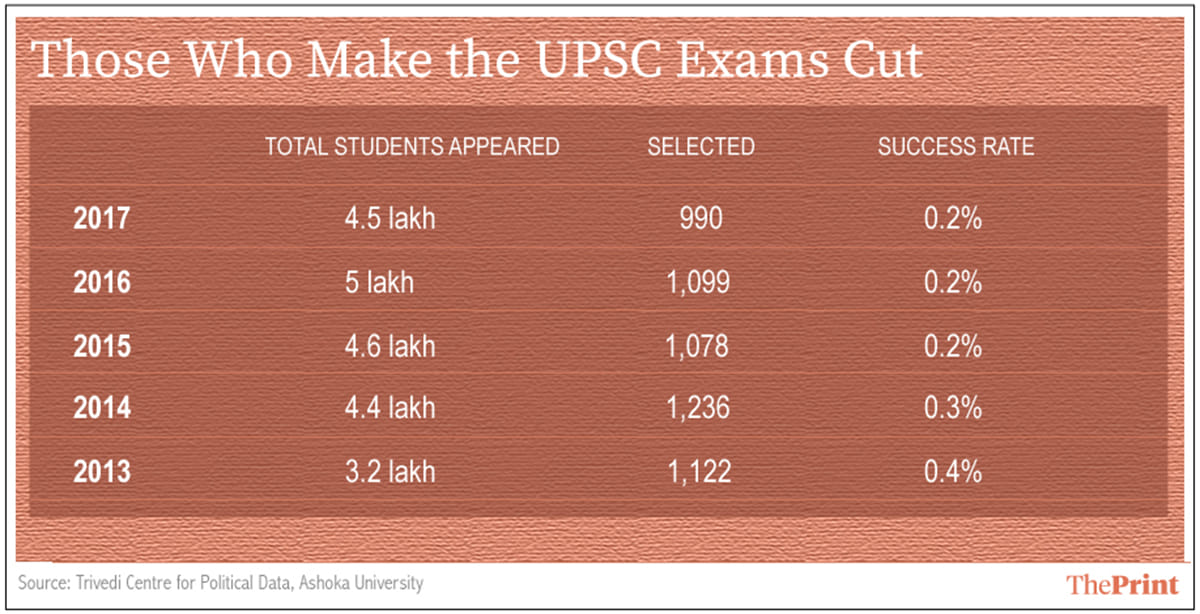
So are the coaching centres actually managing so many selections or is it just a publicity strategy? Have they, over the years, understood what it takes to outfox the question paper-setters at UPSC or is it still impossible to understand what exactly it takes to clear the country’s most prestigious examination?
ThePrint explores an industry that experts have pegged at around Rs 3,000 crore –one fuelled by the desire to land some of the most coveted government jobs in the country.
A three-tier process
On the country’s aspiration scale, the civil services rank right at the top — evident from the sheer numbers that take the examination.
While most seek the coveted Indian Administrative Service (IAS), Indian Foreign Service (IFS) and the India Police Service (IPS), the UPSC exam is conducted for 26 services in all.
Some of these include the Group B (gazetted) services — the Income Tax Services, Accounts and Audits Services, DANIPS (Delhi Andaman and Nicobar Islands Police Services) DANICS (Delhi Andaman and Nicobar Islands Civil Services), Puducherry Civil Services, among others.
Also read: St Stephen’s College plans to replace philosophy course with theology
The selection to these services is a three-tier process. At the first hurdle is a preliminary examination consisting of two papers — one on general studies and the other an aptitude test, which tests a candidate’s logical reasoning, decision-making ability and general mental ability.
Once candidates clear the prelims, they appear for the main examinations that include four papers on general studies, two papers on the optional subject chosen by the candidate and one essay.
The final step is an interview, with such a reputation that it has spawned its own genre of ‘logical questions’ that are supposedly asked in the session. Candidates are called for the interview on the basis of marks they obtain in the main exams.
A growing industry
The structure of the examination has enabled the coaching centres, many of them headquartered in New Delhi, to develop a business model that either targets the entire process or just parts of the exam.
Top centres in the Capital, the hub of the civil services training, charge anywhere between Rs 1.5 to Rs 2 lakh to prepare students for the entire process, including training them for the interview session.
Popular ones such as Vajiram and Ravi, and Rau’s — the pioneers of the civil services coaching trade — charge up to Rs 2 lakh and claim to have as many as 10,000 to 12,000 students on their rolls every year.
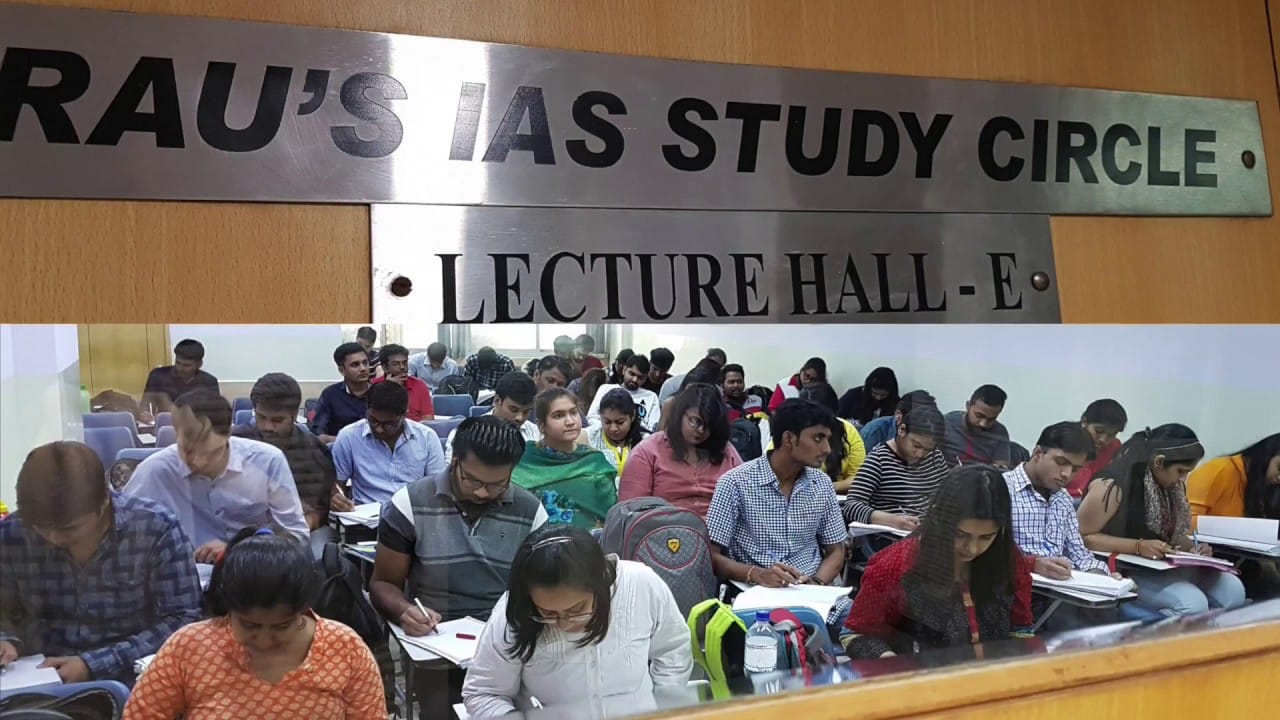
Experts peg the industry to be worth around Rs 3,000 crore, although there are no definite studies on the subject.
Such is the demand that even smaller institutes charge anywhere between Rs 10,000 and Rs 1 lakh, depending on what they offer. The charges for just learning optional subjects vary between Rs 10,000 and Rs 50,000, depending on the popularity of the teachers.
Some institutes even run a course for newspaper reading, in which they charge Rs 10,000, to teach students how to comprehend a newspaper and prepare for current affairs.
“We have a very systematic way of teaching students, right from giving them the correct kind of notes to proper guidance on how to study and what to study,” said a counsellor with ALS Coaching Institute, a popular coaching centre in New Delhi’s Mukherjee Nagar, a hub of civil services coaching.
“Our faculty members are very experienced; they are either retired or serving bureaucrats who know what will work and what won’t in this much-coveted examination,” the counsellor claimed.
In turn, the teachers are paid hefty salaries, prompting some of them to give up their regular jobs as professors in universities, to teach full-time in these coaching institutes.
While a few of the centres conduct the classes in auditorium-like lecture halls, packed with 100 to 150 students, others rely on regular college class-room lectures, where faculty student interactions are possible.
“We run three batches simultaneously with 50 students in each batch and the focus is on encouraging a teacher-student bond. We also encourage the students to follow the previous year’s question pattern for preparation,” said a counsellor from the Sri Chaitanya IAS Academy in Karol Bagh.
“Our USP is that we charge less as compared to other institutions. We only charge Rs 1,06,000 for the course and if the students want they can also choose not to pay 18 per cent GST, which amounts to Rs 16,200,” he said.
Some of the institutes say they do filter students before admitting them.
“Our course runs for a period of 18 months and we do not admit students who are older than 25 years of age,” said Laxman Vaidwan from Future IAS, a coaching centre. “If someone starts preparing for the civil services at 25, they will be over 26 years of age when they finish it. The students either lose interest or they take up other professions, hence the age bar.”
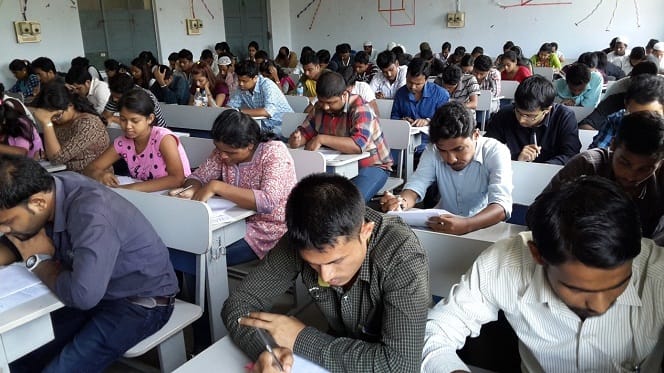
Methods under scanner
One of the USPs of the coaching institutes is that with their experience, they are aware of the intricacies of the UPSC exam and are said to be able to predict a pattern to them.
But these claims are contested, even by toppers of the exam.
“The UPSC is not a graduation exam that one can master. The commission is always ahead of the game. By the time coaching centres gain expertise in something, the commission changes the pattern of the exam,” said Anudeep Durishetty, the UPSC topper for 2018, who mostly prepared through self-study using online study material.
He did, however, take the test series from a coaching centre.
Atul Mishra, who taught History at one of the coaching centres in Delhi, said the UPSC routinely catches the industry off guard. “The civil services exam pattern has undergone a number of changes over the years. These include the change in the number of optional papers, the introduction of an aptitude-based paper to an increase in the number of general studies paper and the elimination of foreign languages from the language paper,” he said.
“The increase in the number of general studies papers in 2013 stumped the coaching centres. Because earlier they would focus more on history, geography but with the introduction of another GS paper, they had to focus on subjects such as science, environment and policies,” he said.
A former UPSC chairman told ThePrint that he believes that just attending coaching classes isn’t enough to crack the exam. “Coaching centres can provide a general sense of the kind of questions that are going to be asked or in the case of the interview, on how candidates can dress and present themselves. I don’t think just because someone goes to coaching, they can crack the exam,” he said.
Also read: IITs, IIMs, NITs have just 3% of total students but get 50% of government funds
Increasingly, the teaching methods themselves are being called into question.
Ira Singhal topped in the civil services exam 2015 — it was her fourth attempt to make it to the IAS. On her personal blog, she blamed her coaching centre for her earlier failures.
“If I had stopped following their advice earlier, I might not have had to wait for my fourth attempt to clear IAS,” she has written, particularly pointing out that the coaching classes even taught her to write an essay for the Mains examination.
She, however, added that coaching is helpful to those who have no idea about the exam. “Coaching mostly works for people who need some kind of hand-holding and need someone else to keep them on track,” she has written. “I took coaching in my first attempt in 2009-10 when I had no idea about the preparation. I did not even know what the topics of the course meant! I had no friends or family who had ever done this.”
That time, there was no material available online, she told ThePrint. “These days a lot of material is available online and a lot of guidance on where to begin is also present online. So if I were preparing today, I would not join them,” Singhal said.
Prakhar Sharma, company advisor, Vajiram and Ravi Institute for civil services examination, vehemently contests that argument.
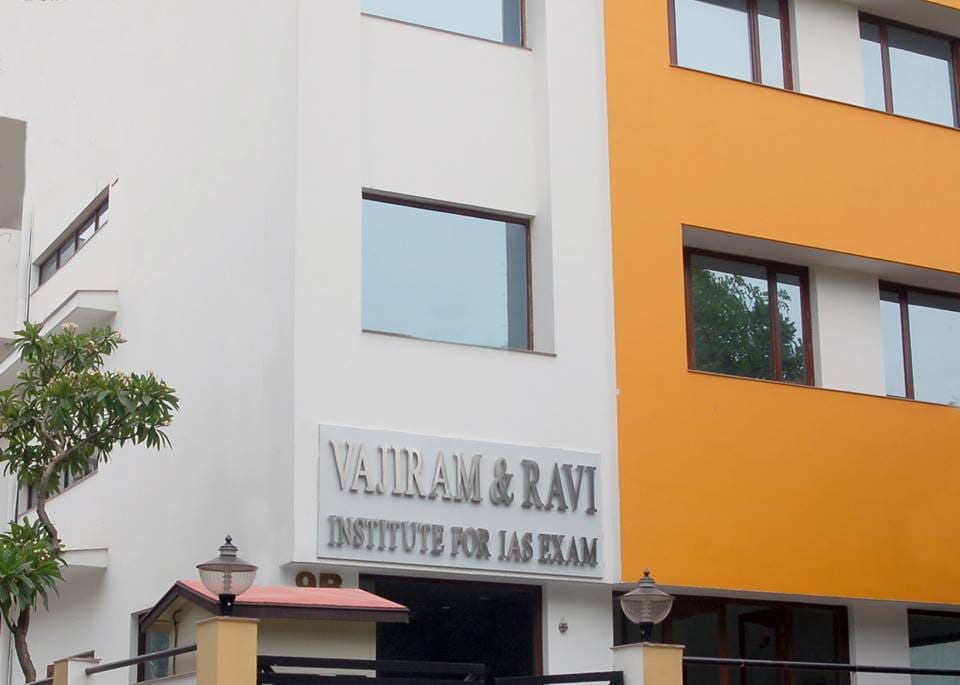
“This is a publicity stunt. She (Singhal) wants to take all the credit for her achievement. It is not unusual as most of the students, who qualify or at least come in the top 10, don’t hesitate to disown coaching centres but the records prove otherwise.”
“Almost everyone who is a topper, of course, barring a few, usually don’t acknowledge that they have taken coaching from somewhere, I don’t know why but probably because they just want to tell everyone that it is their hard work that got them the results, which, to some extent is true,” he said.
A case for coaching
Like Singhal, there are others who believe that coaching does help some candidates.
Aman Jain, a B.Tech graduate, who had prepared for civil services exam at a coaching centre in Delhi, said most with limited time opt for the coaching centres. “The coaching classes get you everything from notes to teachers and guidance. Mostly those who are clueless on how to crack the exam and have limited time to prepare, go for coaching,” Jain says said.
Shah Faesal, the 2009 topper, too believes that coaching helps. “I did not take any formal coaching for the exam and I have always believed that you can qualify this exam without coaching. I know a lot of people who have never left their villages, prepared at home and still qualified the exam,” Faesal told ThePrint.
“But then I know an even greater number of officers who took coaching and qualified. Coaching makes the journey easier and may be less time-consuming. More than the teaching what you understand is the scale of competition once you see how others are preparing,” he said.
“But ultimately it’s the candidate who has to study. You can spend millions and go tothe best of the coaching centres but if you don’t work hard and understand the requirements of the exam, you are not going to land anywhere,” he said.
The battle for credit
A number of aspirants and selected candidates that ThePrint spoke to, cautioned that coaching classes inflate the numbers of those who have passed the examination.
Durishetty, the 2018 topper, said that coaching classes even take credit for those who have just appeared for the test series. “I, for example, did not go to any coaching centre, but a popular coaching centre in Delhi advertised my name, saying that I am their product,” he said.
This, aspirants said, is because even for taking a test series, the coaching centres ensure that candidates are registered with them.
A number of coaching classes had also advertised the name of Tina Dabi, who topped the civil services in her first attempt in 2016. Dabi, as per her own admission, prepared at home, with help from her mother, an engineering services officer, who took voluntary retirement to help her daughter.
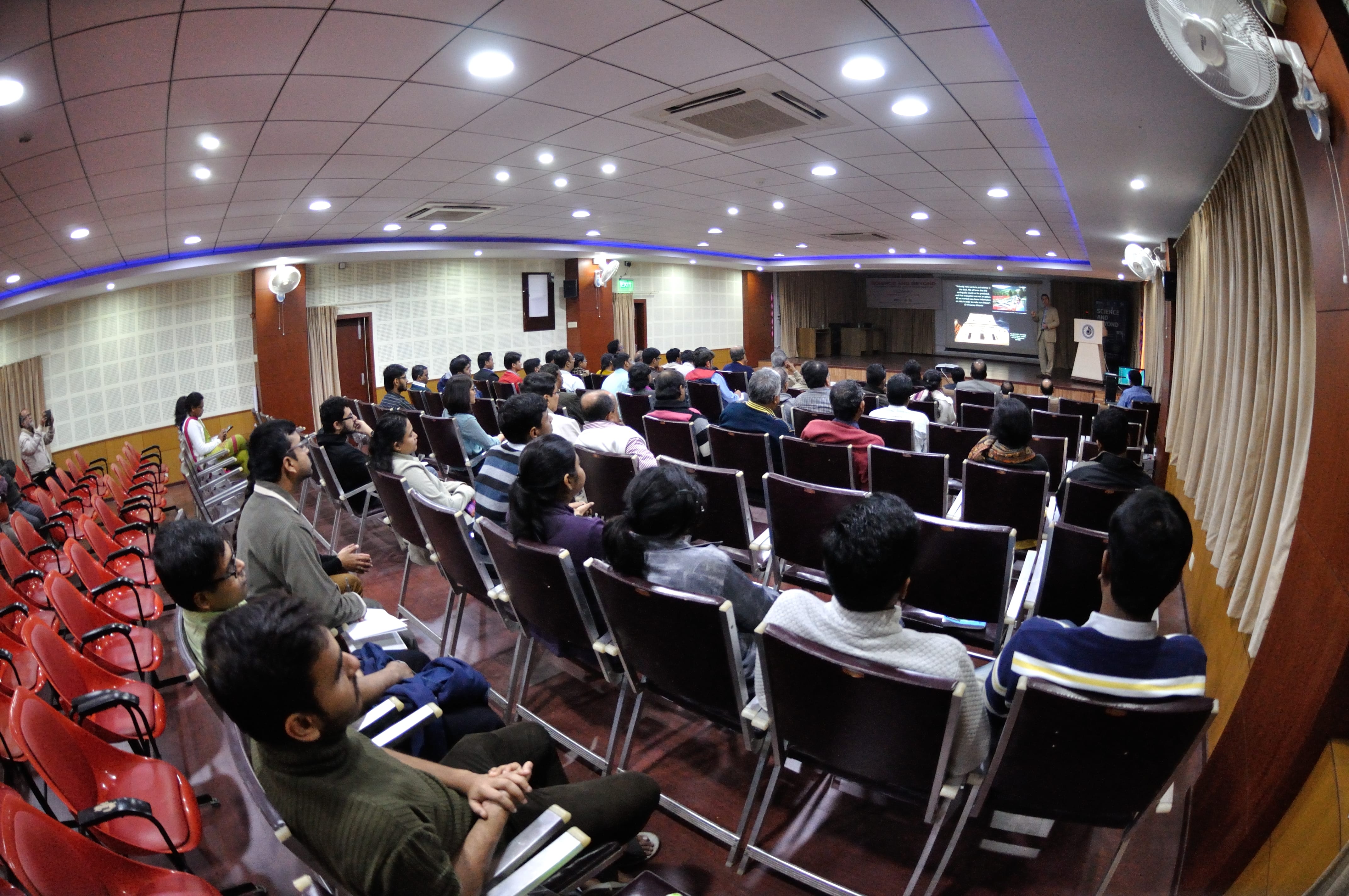
Ira Singhal also blamed that coaching institute had used her name in the year when she did not take coaching from them.
The online threat
The monopoly of the coaching centres, some said, may slowly fade with the advent of online training.
“In the next five years, all the big coaching centres that charge somewhere between Rs 1 to 2 lakh will become redundant because online will take over in a major way,” said Roman Saini, who secured the 18th rank in 2013, before leaving the services to start Unacademy, an online portal for UPSC coaching.
“With better access to the internet, most of the aspirants will prefer to study online instead of going to one of the expensive coaching classes.”
Most online modules charge anything between Rs. 5,000 to Rs. 10,000 with content duration varying from 24 hours to seven days. Some more exhaustive ones can even change Rs. 90,000 for the full programme, but they still cost less than the coaching centres, said Saini.
“Whatever is the expense of online coaching, it is still going to be less than the coaching centres because one has to pay for food and accommodation as well with these coaching classes,” he said.
Saini said only 10 per cent of students benefit from coaching. “It is just the 10 per cent who sit in the front row and are able to ask questions who are benefitted. The goal of these classes is not to maximise the percentage conversion, the goal is to maximise the number of selections, so they will only focus on those they think can get selected,” he said.
Durishetty too believes that some do benefit from the institutes. “Coaching is not necessary, it just gives a direction. A person from a small town who has no idea about the exam or its preparation can go to a coaching centre and it helps in that sense. Excessively relying on coaching centres is not a good thing as there is no set formula to clear the civil services exam,” he said.
Prakhar Sharma, the Vajiram and Ravi advisor, dismissed as premature the suggestions that the big institutes will lose their appeal soon: “All the coaching institutes that exist, they do because they are in demand. If the educational institutes (schools, colleges) were able to prepare a student completely, why would there be any coaching centre?”
With inputs from Rupanwita Bhattacharjee



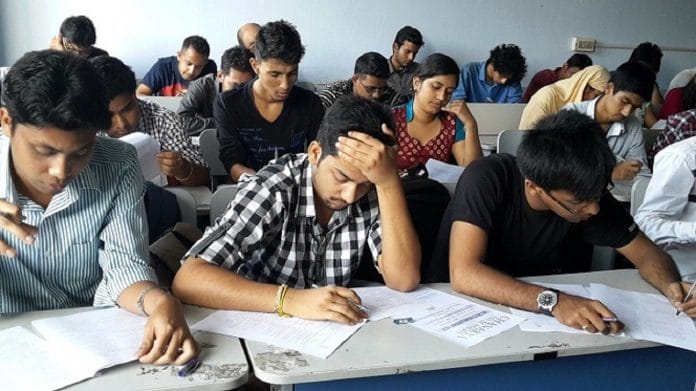



Great Content. Keep up the Good work
Becoming an IAS officer is great.
But if you do not clear it .
You have another option.
Private companies.
But how?
It is due to internship.
In such a case Internship acts as a staircase between the degree and the job and can help students get a job because it gives them training and extra skills.
http://Www.mychatri.com is a good example.
You are absolutely correct. I totally agree with you if schools and colleges were able to educate children and prepare them for such high exams there would be no coaching institutes. If there are some children who pay attention in schools specially the front row students are not able to give time at home that is why coaching institutes are important too. They need proper training for their dreams.
Where is srirams may be only 1 % of coached crowd will go to SRIRAMs but a large number of finally selected will be srirams student. Long live upsc as those 99 % who r not selected government is planning to give their list to corporate India
I am not sure how many of us ever remember the name of district collector or sub division magistrate as none of them ever do anything worthwhile for a common man. We are following a meaningless British system which needs to change. Whereas many politicians with no education are able to do a much better job. Currently our autocracy is meaningless and radical new way to bring talent in to the system is needed. No where in the world, exams r used to choose the talent. Honest assessment of the aptitude of person and his common sense are equally important. Lack of reproducibility of results is another major issue. In scientific terms if same result is not obtained on repeated testing than that method is not useful and same applies to testing methods used by UPSC.
Poor editing. The story is full of quotes et all. It could have been woven better. Not blaming the reporter, but the editors who handled it. The topic had that punch to become a good feature!
Not all institutes are fake. Vajiram no longer has any quality left. Only masses join it. Rau is a bare shell of what it was in 1960`s. I know Upendra sir for sociology and Sriram’s for general Studies. Mukul sir for psychology. All others are fake. Online is pathetic.
There is no meaning for IAS etc. to give such a hype as no IAS officer makes any policy or allowed to take any decisions. Even I did not find extraordinary intellegency too. Many industrialist , corporate managers even earlier Diwans, kings have not passed IAS or MBA but they successfully run the shows. A concept was created by Britishers the same continued. It is better to scrap it. 99 % are not going to get jobs and become again jobless after spending lakhs of rupees of parents money and months together efforts every thing will be wasted is it not a national waste ?. When chances are one percent why 99% should get finally disappointed and finally where they can use this knowledge ? . What message we are giving to the youths ? Is that disappointed ?.
Under researched exaggeratve. Unrepresentative. Quite understandable.
This article is aiming that new aspirants either join these coaching (especially highlighted ones) or get ready to fall by face . This article seems purely business oriented.
Trur
Can any one throw light on who prepare question papers and who evaluate answer sheets of mains. Amongest many selection agencies, UPSC, and SBI P.Os selection procedure appears to be better.
IAS officers today are at the root of corrupt governance of this country; those who want to mint illicit money do not refrain from shelling out for the coaching centres. If at all governance of this country has become productive then tsg of King’s Associate is to be abolished from the Service.
I agree that most go in lure of power and money ….now on zamindaaris so people think of being king as an CIVIL SERVANT because they have a brigade of servers at a call … specially in non metros .
Good information y should government didn’t control money minded coaching centers .it is chance to control commercialized coaching centers thanks a lot sir
Before embarking on such a lengthy article, the writer should have at least brushed up on the core subject matter… Get your facts regarding the services correct… there is no income tax service…. indian audit and accounts service is a group a service alongwith many others such as indian revenue service, indian railway traffic service etc… half baked article…
Very good info.thank you!
You talked of Tina dabi stating that she had not taken any coaching and prepared on her own but she herself visited several coaching, Vajiram and Khan IAS to be precise, and advertised herself being student of their classroom program. You have missed on those morally fallen candidates who after their success take money from coaching centres and advertise.
Coaching centres devoid of students from regular learning, extra curricular activities, academic &sporty affairs, community connect programs which are basics of school or college education for their all-round development ~thus obstructing the very essence of education. Only few of can balance the coaching stuff and scl/college learning recipes, but they are alluring every scl/college student to get into their coaching centres running around parallel with scl. timings.
The so called ‘Logical’ or ‘tricky’ questions are never asked in a UPSC CSE ‘Interview’. It’s not even called as Interview, but called as a ‘Personality Test’. That stage is not to test how good is ones IQ but to find out if the candidate is suitable for an Officer position.
Roman Saini was ranked 18th not 16th. Do better research.
You have mentioned a service called income tax service as group B.
First, there is no service called income tax service .
Second , Indian Revenue Service is Group A service which forms bulk of manpower of income tax department
Very bad that all technical students are lured by civil services when we have a shortage of good technical people. The administrative structure of India is archaic, a British legacy which bureaucracy is perpetuating.